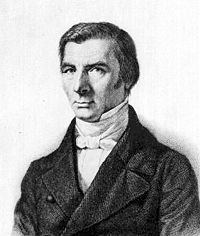 As most libertarians know, Frederic Bastiat was a classic liberal writer and politician in a sea of post-revolutionary socialists. One of his most famous and distributed works is Ce qu’on voit et ce qu’on ne voit pas (That which is seen and that which is not seen). The essay contains twelve subessays discussing various topics relevant to 1840 and even today, regarding “well-intended” ideas (that which is seen) that have unproductive effects in application (that which is not seen). While libertarians begin to expose the problems of government intervention, and are well versed in economics, there are still many things that simply cannot be explained at first glance. And most libertarians are at a complete loss in arguments when the rely on simple logic. The problem is that the interactions of billions of different individuals is exceedingly complex. Even many axioms that are generally true have exceptions. This is what is really not seen.
As most libertarians know, Frederic Bastiat was a classic liberal writer and politician in a sea of post-revolutionary socialists. One of his most famous and distributed works is Ce qu’on voit et ce qu’on ne voit pas (That which is seen and that which is not seen). The essay contains twelve subessays discussing various topics relevant to 1840 and even today, regarding “well-intended” ideas (that which is seen) that have unproductive effects in application (that which is not seen). While libertarians begin to expose the problems of government intervention, and are well versed in economics, there are still many things that simply cannot be explained at first glance. And most libertarians are at a complete loss in arguments when the rely on simple logic. The problem is that the interactions of billions of different individuals is exceedingly complex. Even many axioms that are generally true have exceptions. This is what is really not seen.
When it comes to minimum wage, there are two main arguments. One, by proponents, is that employees deserve a certain amount of money just because they work and businesses will not provide this, unless compelled by force. Two, by opponents, is that a price floor on wages hampers the economy in many ways, namely by causing unemployment, and employees should be free to negotiate any wage with their employers.
Unemployment is one of the main issues when minimum wage is discussed (rarely is the right of workers to negotiate on their own considered). In 1994, David Card and Alan Krueger published a study claiming that minimum wage does not cause unemployment. Six years later, David Neumark and William Wascher published a contrary study saying that the policy does increase unemployment. Both studies are flawed and conclusion cannot really be drawn from either. What is clear is that minimum wage does not seem to have as much of an effect on unemployment as simple economics would suggest.
The main point that free wage supporters argue is that if someone only produces $5 worth of work per hour, and the law stipulates that no one may be hired for below $7.25 an hour, that person will not be hired. Businesses are not a charity. However, things are not that simple. There are many situations where an employer will actually pay an employee more than they are producing. But why?
The reason and employer hires employees is because they cannot do all the work by themself. They have a lot of goods to move and supply, or services to provide, and with all the overhead costs, they need to have help. If goods are not moved or services not served, a business stands to lose money. Lets say there are some products in a storage room that need to be displayed in the store. If that is not done, the store will not make any money. The work may only be at a market value below minimum wage, but the employer will still hire people above that. The loss of profit is far more than the cost of labor. So, an employer faces a decision: lose a lot (dont hire) or lose a little (hire at minimum wage). Many opt for the latter, masking the unemployment that should occur.
This is something that is really not seen. Libertarians would do well to think about this circumstance, and others, where the economics of the situation defy logic. With this knowledge, we can more effectively argue against those who promote government intervention, by being able to answer the really difficult questions, and more importantly, by anticipating them.

Pingback: Most Minimum Wage Studies Are Wrong | Jewish Libertarians